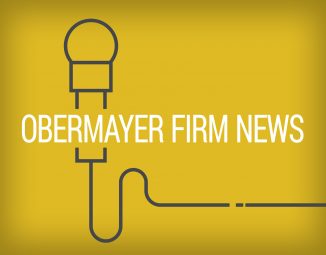Key 2026 Tax Changes
A broad range of federal tax changes will take effect for both individuals and businesses in 2026. Many of these changes arise under the 2025 Budget Reconciliation Act (H.R. 1), also known as the One Big Beautiful Bill Act (“OBBBA”), while others reflect routine adjustments or the scheduled expiration and modification of Internal Revenue Code (“IRC”) provisions originally enacted by the Tax Cuts and Jobs Act of 2017 (“TCJA”). This alert highlights key changes under the OBBBA and notes TCJA provisions that will remain in effect.
Individual Tax Updates
Extension of Tax Rates.
Pre-TCJA individual income tax rates and brackets were scheduled to return for tax years beginning after December 31, 2025, resulting in higher marginal rates. The OBBBA makes permanent the TCJA’s individual income tax rates and brackets (10%, 12%, 22%, 24%, 32%, 35%, 37%), preventing a scheduled rate increase after 2025.
Increased Standard Deductions.
The TCJA increased the standard deduction from $6,500 to $12,500 for individual filers, from $13,000 to $24,000 for joint returns, and from $9,500 to $18,000 for heads of households for tax years 2018 through 2025. The OBBBA expands these amounts to $15,750 for individual filers, $31,500 for joint returns, and $23,625 for heads of households. The OBBBA also makes these expanded standard deductions permanent for tax years beginning after 2025, preventing the increased deductions established under the TCJA from expiring after December 31, 2025.
State and Local Tax Deduction.
The state and local tax deduction provides a federal deduction for income, real property, and personal property taxes paid at the state and local level. The OBBBA increases the applicable limitation amount of the deduction. The limitation, originally set at $10,000 under the TCJA, is raised to $40,400 for tax years beginning in calendar year 2026. For tax years beginning after calendar year 2026, the limitation amount is increased by 1 percent annually. The limitation is set to revert to $10,000 for tax years beginning on or after January 1, 2030. For tax years beginning in calendar year 2026, the threshold amount is $252,500 ($505,000 for a joint return). For tax years beginning after calendar year 2026, the threshold amount increases by 1 percent annually.
Increased Deduction for Seniors.
In addition to the standard deduction or itemized deduction, the OBBBA has introduced a new temporary deduction for tax years beginning before January 1, 2029. The newly introduced deduction allows an additional deduction of up to $6,000 for each qualified individual. A qualified individual means a taxpayer 65 years or older and, in the case of a joint return, the taxpayer’s spouse, if such spouse has attained age 65 before the close of the tax year. The deduction phases out (but not below zero) by 6 percent of the amount that a taxpayer’s modified adjusted gross income exceeds $75,000 for individual filers and $150,000 for joint filers.
Deductions for Qualified Tips.
The OBBBA added IRC Section 224 (Qualified Tips), which allows a deduction equal to the qualified tips received during the tax year that are properly reported and included on statements furnished to the taxpayer. The term “qualified tips” means cash tips received by an individual in an occupation that customarily and regularly receives tips, as provided by the Secretary. The new deduction is available whether or not the taxpayer itemizes deductions. The deduction is limited to $25,000 per tax year. For taxpayers with modified adjusted gross income exceeding $150,000 ($300,000 in the case of a joint return), the amount allowed as a deduction is phased out by $100 for each $1,000 by which the taxpayer’s modified adjusted gross income exceeds the applicable threshold amount. The deduction applies to tax years beginning after December 31, 2024, and is set to expire for tax year beginning after December 31, 2028.
Qualified Business Income Deduction.
The OBBBA made permanent the 20 percent deduction for qualified business income, which was originally enacted under the TCJA and was scheduled to expire after December 31, 2025. Under the OBBBA, the deduction is made permanent for tax years beginning after December 31, 2025, preventing its expiration. In addition, the OBBBA increases the phase-in thresholds from $50,000 to $75,000 for individual filers and from $100,000 to $150,000 in the case of a joint return.
Estate and Gift Tax Exemption.
The OBBBA made permanent the increased estate and gift tax exemption amounts originally enacted under the TCJA. The TCJA temporarily doubled the lifetime estate, gift, and generation-skipping transfer tax exemptions for U.S. citizens and green card holders, from $5 million to $10 million (adjusted for inflation), but was set to expire and revert back to the pre-TCJA $5 million limit after December 31, 2025. Under the OBBBA, the doubled lifetime estate, gift, and generation-skipping transfer tax exemptions are made permanent for estates of decedents dying and gifts made after December 31, 2025. For 2026, the federal estate, gift, and generation-skipping exemption is $15 million ($30 million in the case of a joint return).
No Interest on Car Loans.
The OBBBA establishes a new federal income tax deduction for interest paid on qualifying car loans. For tax years beginning after December 31, 2024, and before January 1, 2029, up to $10,000 of car loan interest can be deducted each year. To qualify, the loan must be a first lien secured by an applicable passenger vehicle that is used for personal purposes. Applicable passenger vehicles include cars, minivans, vans, sport utility vehicles, pickup trucks, or motorcycles with a gross vehicle weight rating of less than 14,000 pounds. To qualify as an applicable passenger vehicle, the final assembly of the vehicle must occur within the United States. The deduction is phased out by $200 for each $1,000 by which the modified adjusted gross income of the taxpayer exceeds $100,000 ($200,000 in the case of a joint return).
Business Tax Updates
Bonus Depreciation.
One of the most significant provisions of the TCJA was the allowance of a 100 percent bonus depreciation for qualified property acquired and placed into service after September 27, 2017. Under the TCJA, the bonus depreciation percentage was phased down by 20 percent each year starting in the calendar year 2023, and was scheduled to completely phase out by calendar year 2026. Under the OBBBA, the bonus depreciation phase-out is repealed, and the full 100 percent depreciation allowance for qualified property is made permanent.
Research and Experimental Expensing.
The TCJA significantly changed the treatment of research and experimental expenditures by requiring taxpayers, beginning in 2022, to capitalize and amortize such costs over a specified number of years (five years for domestic research and 15 years for foreign research), eliminating the ability to claim an immediate deduction. The OBBBA reverses the TCJA requirements and permanently restores the ability to claim an immediate deduction for qualified domestic research and experimental expenditures. Under the OBBBA, taxpayers may elect to deduct the full amount of their domestic research and experimental expenditures in the year paid or incurred for tax years beginning after December 31, 2024. The OBBBA also introduces new IRC Section 174A, which permits the amortization of domestic research and experimental expenditures over a 5-year period. The OBBBA retains the 15-year period for foreign research.
Expansion of Qualified Small Business Stock Gain Exclusion.
The OBBBA significantly expands the federal income tax exclusion for gain on the sale or exchange of qualified small business stock. The OBBBA increases the maximum amount of gain eligible for exclusion from $10 million to $15 million per taxpayer (or 10 times the aggregate adjusted basis of the stock sold during the year, whichever is greater) and raises the gross asset threshold to be considered a qualifying “small business” from $50 million to $75 million. The OBBBA also introduced a tiered system for the gain exclusion, which allows taxpayers to exclude a percentage of gain on the sale of qualified small business stock based on the holding period.
Qualified Opportunity Zones.
The TCJA established the qualified opportunity zone program, where taxpayers could elect to defer recognition of capital gain realized from the sale or exchange of property by reinvesting the amount of the gain in a qualified opportunity fund within 180 days of realizing the capital gain. Under the TCJA, the deferral lasted until the earlier of the date the qualified opportunity zone investment was sold or exchanged, or December 31, 2026, at which point any deferred gain would become taxable. The OBBBA makes the qualified opportunity zone provisions permanent and revises the deferral and basis adjustment rules to extend their availability to eligible investments in a qualified opportunity fund after December 31, 2025.
To discuss how these federal tax changes could impact your individual or business tax position, please contact one of our experienced attorneys. Our team can help you assess potential implications and develop proactive planning strategies.
This alert is intended to notify its readers of new developments in the law. It should not be construed as legal advice or legal opinion on any specific facts or circumstances. The contents are intended for general informational purposes only, and you are urged to consult your own attorney concerning your situation and specific legal questions you have.




